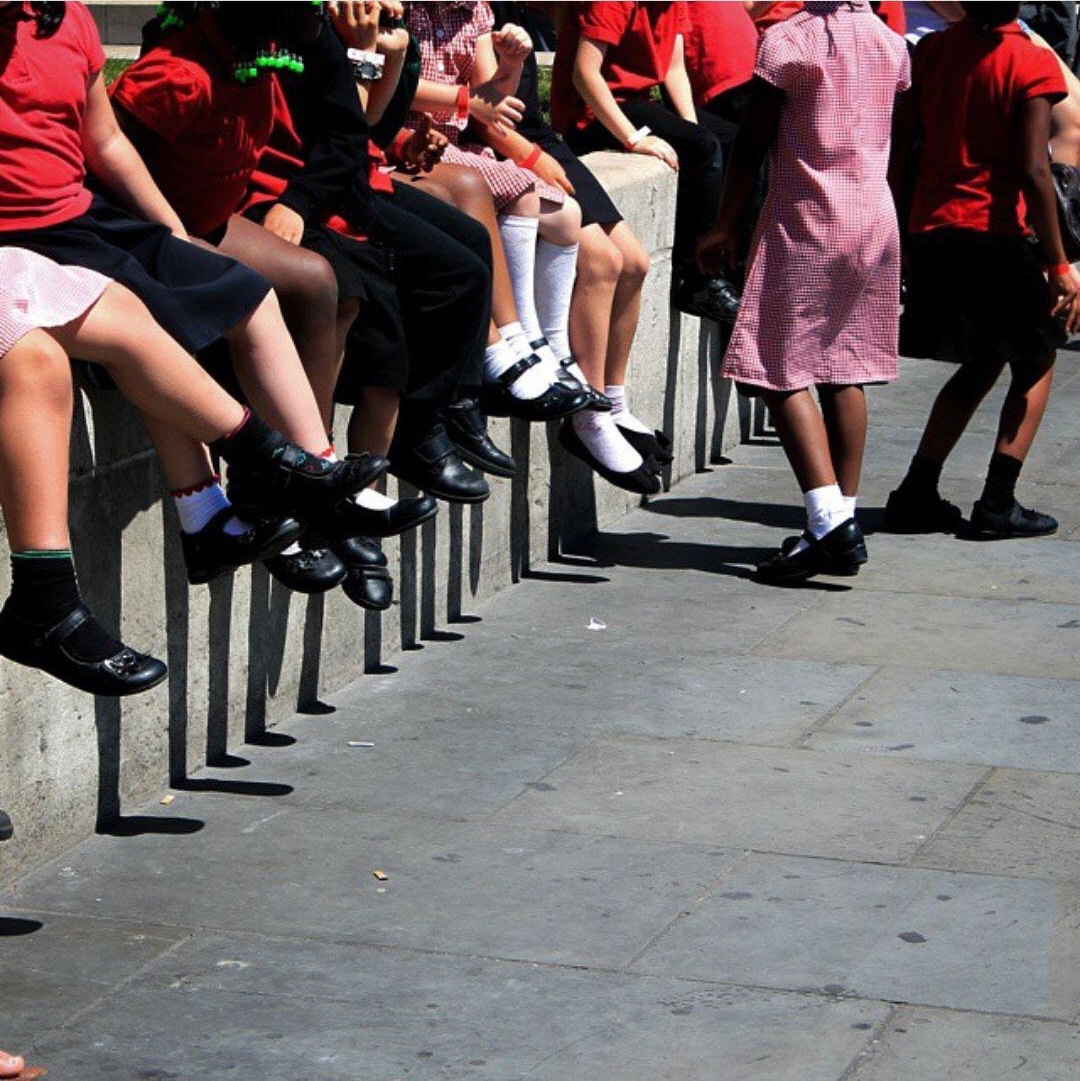While spending time in Lisbon, Portugal in 2017, I met Areti who is a teacher, Greek national, and is currently working on a PhD in Education. I interviewed her one day while we visited one of the many beautiful cityscapes of Lisbon, overlooking a sea of red roof tops, cathedral domes sticking out of the skyline and the flowing Tagus river. I was truly curious about her studies and topics of research and learning about her cultural perspective on education and how the countries she has lived and taught in have shaped her work in School Culture.

Where are you from and where do you live?
I am from Crete, Greece and I live between Barcelona and Lisbon at the moment.
What did you study and worked?
I studied English Language and Literature in Greece, followed by a masters in Human Resources Management in the UK. After masters I started teaching business English and tourism English to adults in private colleges and companies.
After passing the Greek National exams I became a primary school English teacher. I worked with ages 6 to 12 years old. I was a teacher for 6 years before I began my International PhD in Applied Pedagogy, in Barcelona, Spain. At the moment I am on a research exchange in Lisbon, Portugal for the purpose of this PhD.
In what language is your thesis and how many languages do you speak?
My thesis is in English, but of course Greek is my mother tongue and I speak fluent Spanish, while I am currently also in school to learn Portuguese.

What is your research about?
My main research interest is School Culture and change in education, especially with regards to 21st century skills. I am investigating the predisposition of school culture towards the introduction and implementation of change that is essential for the development of skills and competencies that the students will need as citizens in the 21st century world. My primary data is from Greece, since this is the education system I have experience in.
How did you come to this interest?
From my teaching experience I had the feeling that education is quite resistant towards change for a variety of reasons. This poses a danger of it becoming obsolete, given the fact that the world is constantly and rapidly changing.
What is the most difficult part of this research?
The most difficult part of this research is that it has to do with complicated multi-aspect concepts. Especially the idea of school culture is a very challenging area to investigate because as a concept it is highly subjective, multidimensional and taken for granted.
What is an easy part for you?
Having been a part of the education system in Greece myself, makes it easier for me to comprehend its particularities such as shared assumptions, beliefs and the way things run in everyday school practice.
What do you love about this topic?
Apart from evaluating the actual school culture, this research sheds light to the areas where teachers would like to see change.
What makes this thesis unique?
I am interested in finding out the value gaps between the actual school culture and the desired school culture. I wish for the teachers to evaluate their own school culture. I tackle areas such as: how is it, how teachers what it to be, if they realize, and lastly if they wish to change it.
For example, there are 11 areas of school culture that are closely related to the 21st century skills. Some of these areas are: school purpose, management, teacher collaboration, student culture, family culture. As well as academic emphasis areas such as: social and civic skills, creativity, geographical scope, teaching resources and tools, innovation, and beliefs about change.
What kind of profession are you interested in pursuing after the PhD and why?
Education has always been and still is my passion. I would like to be able to serve it using the PhD experience and knowledge in the education system of Greece.
What do you find different from education system in Greece from Spain and Portugal?
Each education system has its unique character. I have a better insight in the Greek educational system compared to the other two.
Although there are some contextual differences, there’s a common interest amongst all three countries towards educational change. They all recognize the fact that the current educational system might not respond to the all the needs of the contemporary world.
From my interviews with professionals in various positions within the educational system, they all agree that the educational decision making remains a centralised top-down process. Teachers do not have much say in the evolution of strategy or policy. I believe educational change has to be a bottom-up contextualized process if it is to succeed its goals.
Share your story about a memorable classroom experience.
In one of my classrooms in Crete, Greece with 11 years olds, I had a new student that had just arrived from China. She could not speak a word of Greek and very little English. We tried different methods of communication including online translation platforms. Possibly because of the different cultural communication styles, the student remained considerably reserved. When the time came for me to move to Spain for my studies, I was really surprised at her sentimental reaction when she found out. This for me was a reminder that teachers presence in the classroom has a great impact on children’s lives, regardless of the fact that it may not be obvious at all times.
Share a personal cultural experience.
To start with, I was surprised to see how the three countries, Greece, Spain and Portugal, share a great range of cultural aspects such as sense of humor. I saw this especially between Portugal and Greece. For example, in both countries there is a loose perception of time, such as being on time is not a priority, or being late is not considered rude. Personally, I am the type to be precise with time, so this is a fact I have to accept in both countries.
Where’s your favorite place traveled to on earth?
I have recently been to Morocco, and I loved it, especially seeing the sky in the dessert.
Thank you Areti for sharing your research, efcharisto, gracias and obrigada.
I was drawn to Areti’s subject of research because I too believe that the education system needs to change and adapt to our rapidly changing world. From my teaching experiences in Asia, Europe and North America, as well as from being an Educational Coordinator with Know My World exchanges, I have come across many outdated teaching methods and resources that do not fit in well with the children and youth of the 21st century. As Areti mentioned, I too agree that change had to come from bottom-up. The teachers are the forefront of education and they know their students’ needs best. Their input in what changes are needed must be heard and implemented in their educational systems. It makes me happy that teachers like Areti are tackling this topic and shedding a light on this topic.
